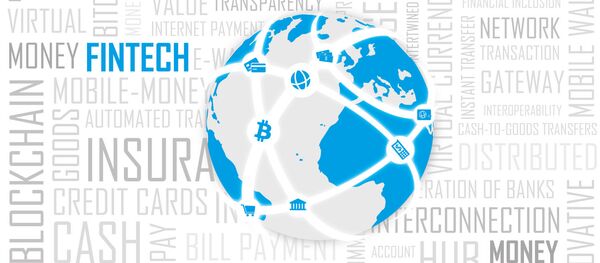BP is experimenting with blockchain, in the hope of making oil and gas trading more efficient. The energy giant's foray into the sphere is just the latest example of a major business adopting the technology, dragging the database provision into the mainstream in the process.
In an interview with the Financial Times, David Eyton, Head of Technology at the firm, said the group was investing in pilot programs to explore the "practical and ethical" implications of using blockchain in the energy sector.
"There are uses for blockchain that could give us a competitive advantage. Blockchain can be much more efficient in terms of speed and verification of transactions. In a big company, with lots of different corporate entities, you have to manage financial settlements and reconciliation between different parts of the business. A lot of that lends itself to blockchain," Eyton said.
BP Tech Chief: Blockchain Could Give Company 'Competitive Advantage' https://t.co/tJlppxRjbT pic.twitter.com/6GAM4MlSDg
— CoinDesk (@coindesk) October 3, 2017
Blockchain — a digital ledger system that records online transactions — is oft regarded as an "anti-establishment" innovation associated with digital currencies, such as bitcoin, which rely on the technology. Adam Jason, Head of Business Development at blockchain specialist Coinsilium, believes BP's interest in the sphere reflects increasing awareness among major corporations about the potential of blockchain.
"BP recognize blockchain can be used to streamline processes, significantly reducing office costs and stripping out many bureaucratic processes across their business. From trading and settlement of financial instruments, to logistics and supply-chain management, blockchain and smart-contract technology offer innovative solutions with potential for huge savings, which is why we've seen resounding endorsements from industry leaders such as BP," Mr. Jason told Sputnik.
How #blockchain & digital #ProcessAutomation can join forces to revolutionize business processes across orgs: https://t.co/cnMJ7tONaq pic.twitter.com/xXLMBs82CC
— IBM BPM (@BPMfromIBM) October 1, 2017
As part of BP's blockchain ambitions, the company has already embarked on a project with Italian oil major Eni, and Wien Energie of Austria, on a pilot program in association with Anglo-Canadian tech firm BTL, in which blockchain trades have been run on an experimental basis, in parallel with live trading systems. However, the report stated oil and gas trading was but one of many potential applications for blockchain envisaged by BP — externally and within the organisation — using traditional currencies rather than cryptocurrencies.
Despite the technology being in its relative infancy, the lofty promises of blockchain have evidently proven seductive to many businesses — BP is far from the first major corporate entity to delve into the field. Other firms that have adopted blockchain include Danish shipping titan AP Moller-Maersk (which uses it in marine insurance contracts), and banks such as HSBC and Deutsche (in cross-border trade finance).
Moreover, Mr. Jason notes most major payment processors, such as VISA and Mastercard, are filing blockchain patents, Google and Facebook are looking to integrate digital currencies to their platforms, and "every big bank" has a dedicated department for researching blockchain and digital currencies.
However, he is quick to add that there are examples of companies getting involved in Blockchain out of "a desire to be seen to be doing something," without much depth of understanding of the technology.
"Blockchain technology is still at a very early stage in its development, so it'll take time for large-scale adoption to take place. Still, increasing corporate interest in Blockchain is a very positive thing. Blockchain technology has certainly reached new level of mainstream awareness and public accceptance. This is just the beginning of a bright future for distributed ledger technology — it feels like internet 2.0, but this time anyone can own a piece of it," Mr. Jason explained.
Blockchain and digital currencies may be intrinsically linked, but they are quite separate concepts and entities nonetheless. Whether a bitcoin is worth a dollar or a cent, "the tech still remains" — and the high and rising value of bitcoin and other digital currencies is symptomatic of "excitement and enthusiasm" about the very technology that underlies it.
"Blockchain is disruptive in so many unforeseen ways — you find a new use case almost every day. Although this is not always guaranteed by any means, the technology has the capacity to replace many elements of the current financial services sector. There are endless possibilities to what can be achieved, and ultimately it's all about new financial freedom for individuals in the digital age," Mr. Jason concluded.




